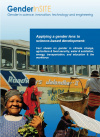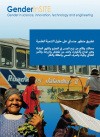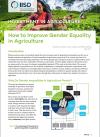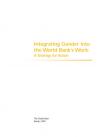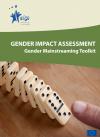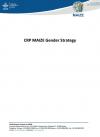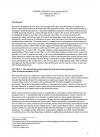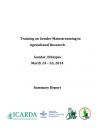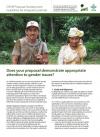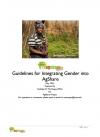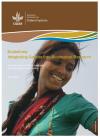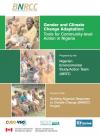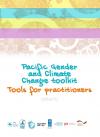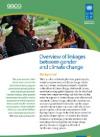Resources
21 Feb 2018
A booklet of fact sheets to provide an overview of the gender dimensions of the six GenderInSITE thematic areas: climate change, agriculture & food security, water & sanitation, energy, transportation, and education & the workforce
TYPE: Fact sheets
21 Feb 2018
A booklet of fact sheets that present an overview of the gender dimensions in the six GenderInSITE thematic areas: climate change; agriculture and food security; water and sanitation; energy;
transportation; and education and the workforce
TYPE: Fact sheets
21 Jun 2017
International Institute for Sustainable Development, 2017: Policy brief explores how global standards and guidelines contribute to gender equality and women’s
empowerment, and whether more can be done through these instruments to improve the situation of women in
agriculture.
TYPE: Policy briefs
12 Oct 2016
World Bank, 2002: Strategy identifies gender-related barriers to poverty reduction and sustainable development; and recommends appropriate actions to reduce these barriers; it is intended to establish an enabling environment
to foster country-led, country-specific strategies for changing the gender patterns that are costly to growth, poverty reduction, and human well-being.
12 Oct 2016
European Institute for Gender Equality (EIGE), 2016: Toolkit provides guidance for government and other institutions to assess whether their policies, programmes, action plans and projects reduce, maintain or increase the gender inequalities between women and men.
12 Oct 2016
CGIAR: Strategyoutlines the process and approach that the MAIZE program has adopted in order to contribute to and promote gender equality and equity in agricultural research for development (R4D) related to maize-based systems.
12 Oct 2016
CGIAR, 2013: Gender strategy lays out approaches to improve how women are included in livestock agriculture and aquaculture, and to improve the equity of the social and institutional environments in which value chains function to enhance the range and quality of choices and outcomes poor women and men have within them.
12 Oct 2016
CGIAR/International Agricultural Research Center in the Dry Areas (ICARDA), 2014: Report from a training workshop covering the practical, technical and analytical aspects of gender mainstreaming in dryland agriculture, as well as lessons learned for consideration in future trainings.
REGIONS: Sub-Saharan Africa
10 Oct 2016
Center for International Forestry Research (CIFOR), 2013: Short guide will provide you with some key questions to help ensure your proposal to CIFOR demonstrates appropriate attention to gender issues, and includes recommendations to identify improvements for forest policies and practices that offer the best options for all parties and aim to address gender imbalances.
10 Oct 2016
Center for International Forestry Research (CIFOR), 2013: Short guide will provide you with some key questions to help ensure your proposal to CIFOR demonstrates appropriate attention to gender issues, and includes recommendations to identify improvements for forest policies and practices that offer the best options for all parties and aim to address gender imbalances.
06 Oct 2016
AgShare, 2015: Guidelines for integrating a gender perspective into the different components of the AgShare methodology, a model that provides strategies for a coherent institutional approach to teaching and research in order to create a scalable and
sustainable method of filling critical resource gaps in African MSc agriculture curriculum.
REGIONS: Sub-Saharan Africa
06 Oct 2016
CGIAR, 2015: Intended for biophysical research scientists, specifically working on dryland systems, these guidelines for integrating gender into biophysical research propose simple and practical steps for taking gender into account throughout the research project cycle.
23 Sep 2016
Nigerian Environmental Study/Action Team (NEST), 2011: Toolkit provides resources on the basic concepts of gender mainstreaming, analysis and
planning; Increases awareness and reduces the gender bias that informs individual attitudes towards gender equity work; and provides basic knowledge and tools to effectively mainstream gender equity.
REGIONS: Sub-Saharan Africa
23 Sep 2016
SPC, SPREP, et al., 2015: Toolkit is designed to support climate change practitioners in the Pacific islands region to integrate gender into their programmes and projects, aimed at climate change professionals working in national governments,NGOs, regional and international organisations who are involved in managing and implementing climate change programmes.
.
TYPE: Case studies, Toolkits
23 Sep 2016
UNDP, 2014: Series of policy briefs and training modules on gender and climate change for practitioners and policy makers in Africa with themes of specific relevance to Africa, including a general overview of climate change issues, adaptation, agriculture and food security, equitable energy access, and climate finance.
REGIONS: Sub-Saharan Africa
TYPE: Policy briefs, Training
- 1 of 3
- next ›




